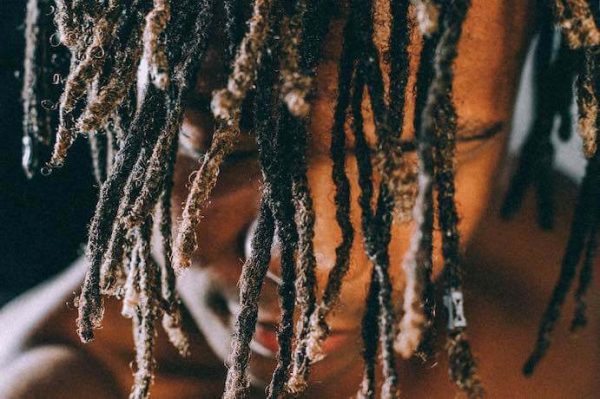
Despite the fact that numerous cultures throughout the globe have accepted dreadlocks for centuries, numerous individuals are concerned about their potential negative effects on hair health. Are Dreadlocks Bad for Your Hair? or is this a widespread fallacy? We will examine the facts and dispel some of the myths surrounding the health effects of dreadlocks in this article.
Are Dreadlocks Bad for Your Hair?
Consistency in care, installation, and maintenance are critical factors that significantly influence the well-being and effectiveness of one’s dreads. It is always prudent to consult a professional who specializes in dreads to maintain healthy hair and locks that are in pristine condition. However, are locks truly detrimental to one’s hair? Are the misconceptions in fact accurate? Let’s find out;
Myth #1: Dreadlocks Cause Hair Loss
A prevalent misconception regarding locks is that they can cause hair loss. There is a common concern among individuals that the establishment and upkeep of dreadlocks may subject the hair to an undue amount of strain, resulting in breakage and thinning. In reality, appropriate installation and maintenance of dreadlocks should not result in hair loss.
Dreadlocks are conventionally established through the process of twisting, braiding, and backcombing the hair, which necessitates regular upkeep. This process, when performed properly, should not cause harm to the hair. Dreadlocks can, in fact, serve as a protective hairstyle, mitigating the potential harm caused by external elements like abrasive chemicals and heat styling.
It is essential to note, however, that locks that are not installed or maintained properly can cause hair damage. Dreads that are overly contorted or neglected may subject the hair to stress, which may ultimately result in breakage. To guarantee the health of your hair, it is essential to consult a professional who specializes in the creation and maintenance of dreadlocks.
Myth #2: Dreadlocks Are Unhygienic
The notion that dreadlocks are unhygienic and can cause scalp problems is another common myth. Although dreadlocks do necessitate a distinct approach to hair maintenance, they do not intrinsically give rise to hygiene concerns. Consistent hygiene, including routine cleansing, is critical for preserving the health of the cranium and hair when utilizing dreadlocks.
Due to their compact structure, dreadlocks tend to retain more grime and residue than uncoiling hair. As a consequence, individuals who have dreads must cleanse their scalp and tresses frequently in order to prevent buildup. By using shampoos that leave no residue and adhering to a regular cleansing schedule, you can maintain the health of your scalp and dreadlocks.
Myth #3: Dreadlocks Prevent Hair Growth
Certain individuals hold the belief that dreadlocks impede hair growth, implying that the weight and constriction of the tresses hinder the development of new hair. Indeed, dreadlocks do not impede the growth of hair; instead, they may diminish its visibility.
Dreadlocks can potentially create the appearance of reduced hair growth due to the retention of newly grown hair within the locks. As the hair at the roots develops, it becomes entangled and assimilates into the pre-existing dreadlocks, thereby diminishing the visibility of the lengthening process. However, with proper maintenance and care, your hair will continue to grow normally, and if you prefer a neater appearance, you can choose to trim it or allow it to secure into your existing dreads.
Frequently Asked Questions About Are Dreadlocks Bad for Your Hair
Here are some frequently asked questions (FAQs) about the impact of dreadlocks on hair loss:
1. Do dreadlocks cause hair breakage?
When installed and maintained properly, locks should not cause hair breakage. However, improperly created or maintained locks can lead to damage and breakage.
2. Is it possible to have dreadlocks with short hair?
Yes, you can start your dreads with relatively short hair, although it may take longer for them to mature and fully develop compared to longer hair.
3. Can I wash my dreadlocks like regular hair?
Dreads require regular washing, but it’s essential to use residue-free shampoos and ensure they dry thoroughly to prevent mold or mildew growth within the locks.
4. Are dreadlocks suitable for all hair types?
Locks can be achieved with various hair types, but the methods and care may differ. Consulting a professional who specializes in your hair type is advisable.
5. Do dreadlocks need special maintenance?
Yes, dreadlocks require regular maintenance, such as retightening, palm rolling, or interlocking, to keep them looking neat and to prevent matting.
6. Can I color or dye my dreadlocks?
Coloring locks is possible, but it’s important to use hair dye specifically designed for dreads to prevent excessive damage. Bleaching and frequent coloring can weaken the locks.
7. Are dreadlocks heavier than regular hair?
Dreadlocks can add some weight to your hair, but it’s not typically a significant issue. However, very long or thick locks might feel heavier.
8. Can I switch back to loose hair after having dreadlocks?
You can transition back to loose hair, but the process can be time-consuming and may result in some hair loss. Consult a professional for guidance on the removal process.
9. Do dreadlocks require special hair products?
While some hair products are designed for dreads, using residue-free shampoos and natural products is recommended to prevent buildup within the locks.
10. How long do dreadlocks take to mature?
The time it takes for locks to mature depends on factors like hair type and maintenance. It can range from several months to a few years for them to fully mature.
Conclusion
When properly applied and maintained, dreadlocks do not have an intrinsic detrimental effect on one’s hair. Maintaining healthy dreadlocks requires consistent cleansing and care, in addition to proper installation and maintenance. As with any hairstyle, injury and hair loss can result from neglect and improper maintenance. Nevertheless, it is critical to dispel prevalent misconceptions and recognize that dreadlocks can serve as a fashionable and distinctive method of self-expression while maintaining the health of your hair.
Consult a professional stylist who specializes in this hairstyle and adhere to a proper care routine if you are contemplating having dreadlocks to ensure that your hair remains healthy and your dreadlocks remain beautiful. Dreadlocks should ultimately be chosen for aesthetic and personal preference reasons, not out of unfounded concerns about potential hair injury.

Leave a Reply